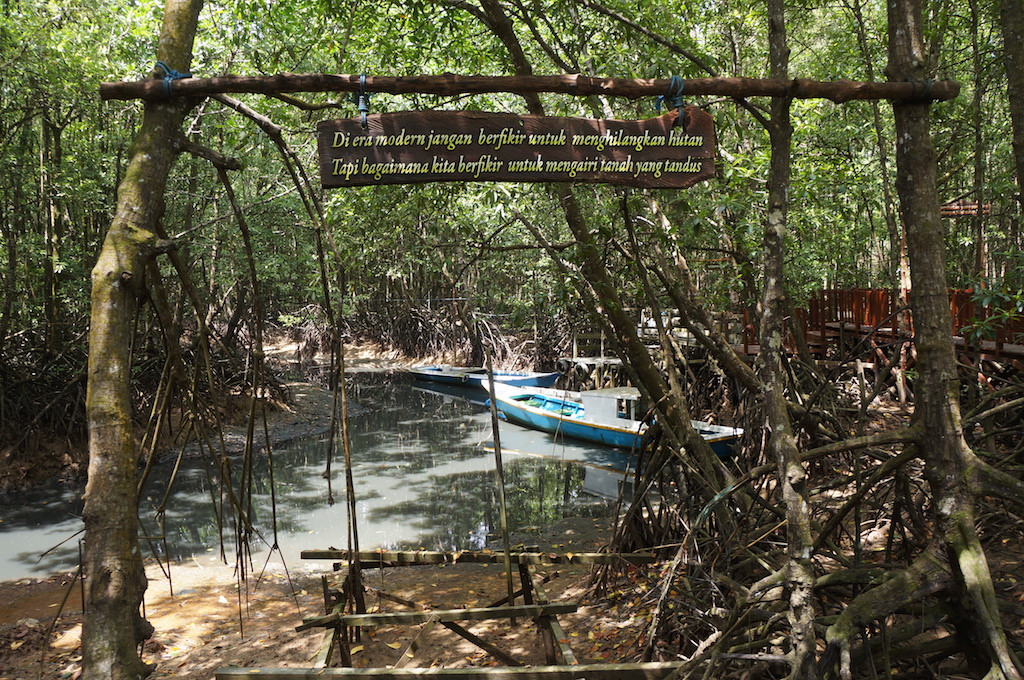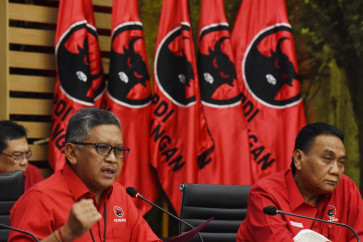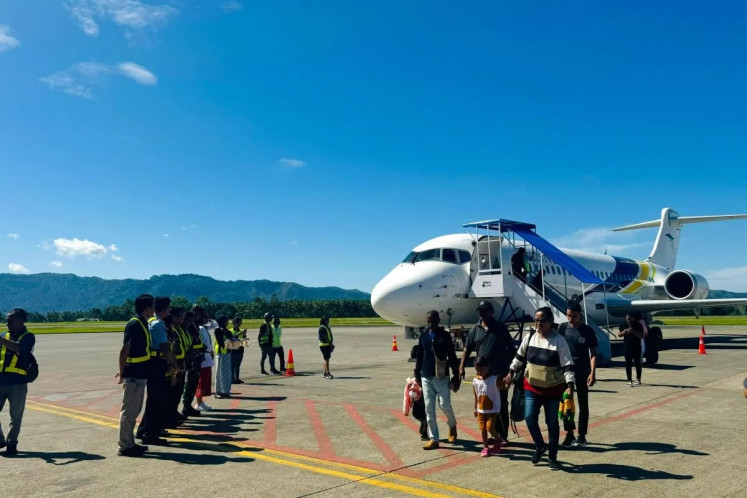Norway to assist RI conservation eff orts
Indonesia is set to receive a US$56 million grant from Norway in the first payment for the country’s success in reducing deforestation and carbon emissions under the Reducing Emissions from Deforestation and Forest Degradation (REDD+) cooperation scheme.
Change Size

Indonesia is set to receive payment from Norway for successes in reducing deforestation and carbon emissions.
The Indonesian Environment and Forestry Ministry announced late last month the country was set to receive a US$56 million grant from Norway as the first payment under the Reducing Emissions from Deforestation and Forest Degradation (REDD+) cooperation scheme.
The grant is to be handed over in June, coinciding with the commemoration of a decade of climate funding cooperation, in which Indonesia expects to receive a total of $1 billion for protecting its tropical forests.
The money will be paid in installments based on Indonesia’s success in reducing greenhouse gas emissions from deforestation and forest degradation below the ten-year average established from 2006 to 2016. The annual emissions during that period were estimated to be 237 million tons of carbon dioxide equivalent (CO2e) from deforestation and 42 million tons from forest degradation.
According to the Norwegian government’s verification process from November 2019 to March of this year, the emissions reduction achieved by Indonesia in the 2016 to 2017 period was 11.2 million tons of CO2e – higher than its initial report of 4.8 million tons.
Read also: Indonesia to receive $56 million from Norway for reducing emissions
Each ton of CO2e under the scheme was valued at $5 – the price designated by the World Bank for the REDD+ scheme.
A ministry report found that Indonesia had lost about 479,000 hectares of forest in 2017, lower than the 630,000 hectares in 2016.
Norwegian Ambassador to Indonesia Vegard Kaale lauded Indonesia for the achievement.
“Our hope is, of course, that the reduced deforestation in the 2016 to 2017 period is a result of the reforms and law enforcement Indonesia has imposed and that we will see continued decrease in the deforestation rate in the following years,” Kaale told The Jakarta Post recently.
“Preliminary numbers show that deforestation continued to go down in 2017 to 2018 and 2018 to 2019.”
As the bilateral cooperation effort enters its 10th year, both countries are discussing updating the provisions of the cooperation.
Environment and Forestry Deputy Minister Alue Dohong said the REDD+ agreement’s letter of intent (LoI) would be improved, with Indonesia suggesting that the agreement include new clauses for peatland and mangrove degradation.
Scientists have previously argued that Indonesia’s peatlands and mangroves, both of which are abundant across the archipelago, are also key to the country’s efforts to mitigate climate change, as both ecosystems are known for their absorption and storage of greenhouse gases from the atmosphere.
“We have achieved a lot in our 10 years of cooperation to reduce emission from the forest sector. Therefore, both countries have agreed to continue this partnership through amendments to the existing LoI,” Alue told journalists during a virtual press briefing on May 28.
Read also: Can Indonesia stop deforestation?
Kaale echoed the deputy minister: “Norway would like to continue supporting Indonesia’s work on reducing deforestation, [as both countries] have signed the Paris Agreement on climate change, which requires all signatories to increase climate mitigation ambitions over time.”
However, both Alue and Kaale declined to reveal the details on the updated LoI as the negotiations were still ongoing.
If the clauses on peatlands and mangrove forests are eventually included in the agreement, it will be possible for Indonesia to receive more money from Norway under the REDD+ scheme for saving both ecosystems from destruction.
The ministry’s director general of climate change control, Ruandha Agung Sugardiman, said the money from the REDD+ grant would be channeled through the country’s Environmental Estate Fund (BPDLH), a public service agency launched in October of last year tasked with managing funds related to environmental protection and conservation.
He said the ministry was still working on the detailed investment plan for the funds. However, they are expected to be disbursed for conservation work in the forestry and land management sector and for other activities such as sustainable forest management projects.
Ruandha added that the funds could be disbursed to regions based on proposals or their achievements in reducing deforestation.
Read also: How Indonesia finally earned nod from Norway for climate fund
While applauding the government for receiving the grant, the Madani Foundation, an environmental group, said it should encourage all parties to develop the economy without damaging forests.
“Although the decrease [in deforestation] is not too significant yet, it is still a result of corrective measures enacted by the government as well as international cooperation,” Madani Foundation executive director Teguh Surya said in a statement.
He said that deforestation had indeed shown a decreasing trend between 2003 and 2018, according to government data, although there were a few spikes between 2014 and 2015 – a period that coincided with the country’s general elections.
The years of 2015 and 2019 were also believed to be hard for Indonesia’s forests because of large land and forest fires that blazed in several parts of the country, although the full extent of the fires’ effects on deforestation have yet to be established.
According to government data, about 2.61 million hectares of forest and land were burned in 2015, followed by 1.65 million hectares in 2019.









